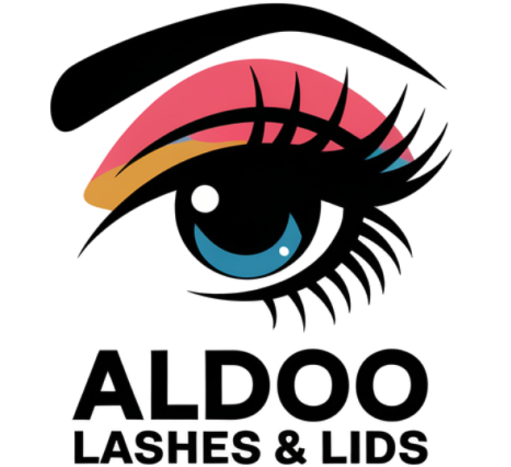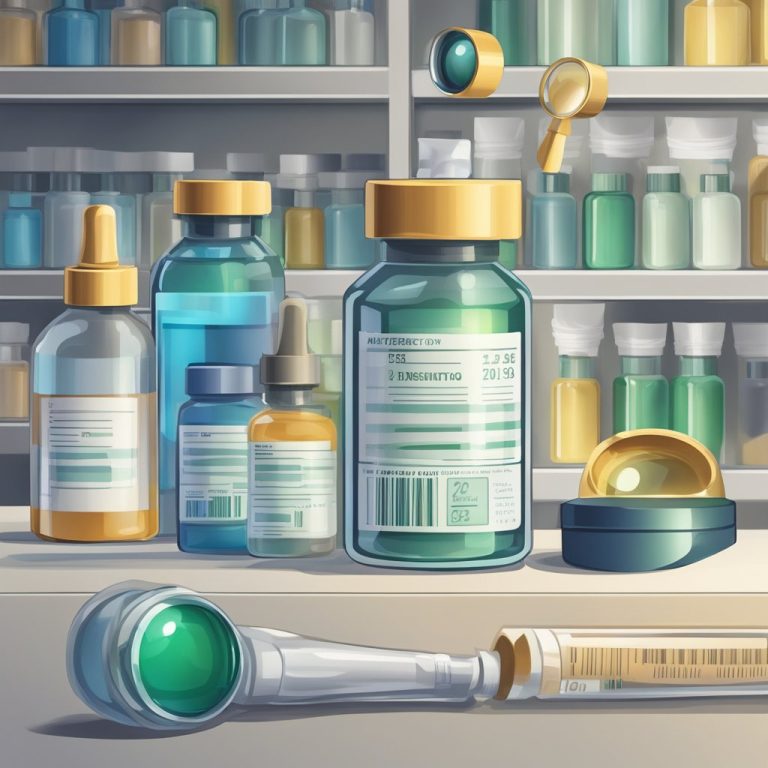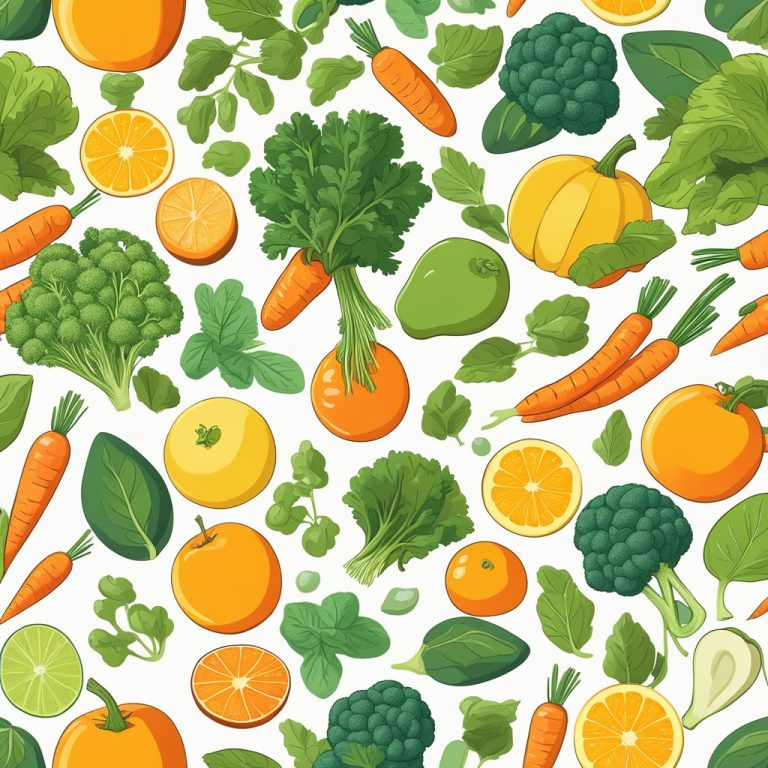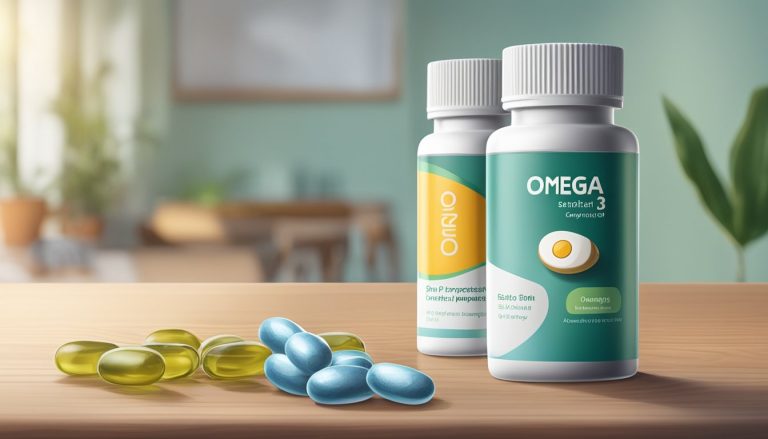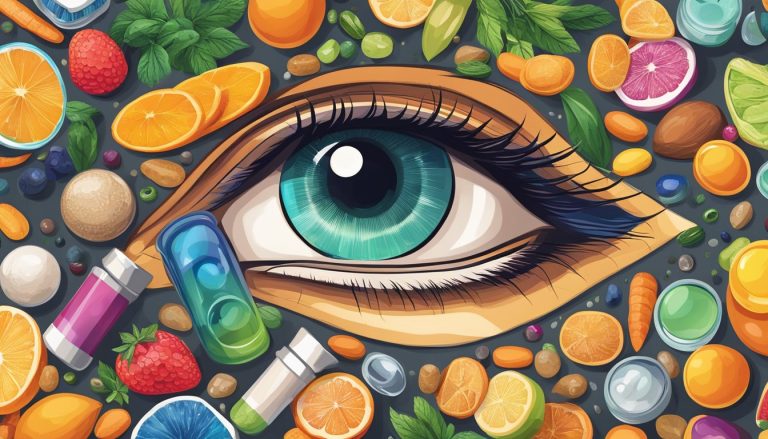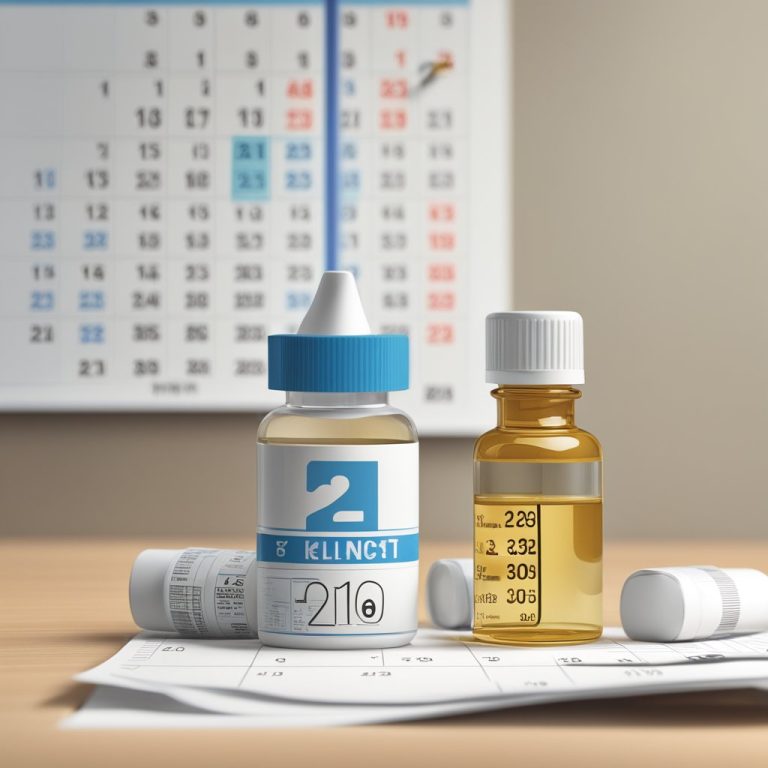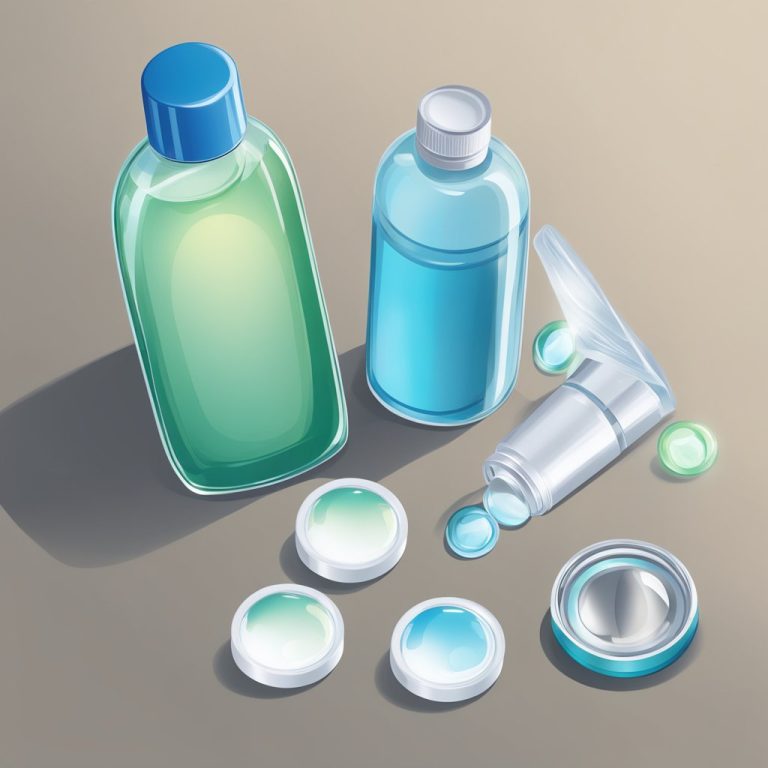Eye vitamin supplements
See the Difference: A Complete Guide to Vitamins for Vision Health
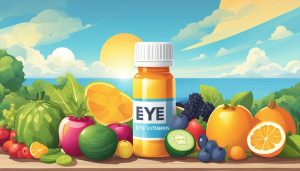
You may have heard of eye vitamin pills if you want to improve the health of your eyes. People buy these vitamins to keep their eyes healthy and avoid getting age-related eye diseases like cataracts and macular degeneration. A good diet full of fruits and veggies is important for keeping your eyes healthy, but some people may also benefit from taking certain supplements.
To choose the right eye vitamin pills for you, you need to know a lot about eye health and nutrition. To work at their best, your eyes need a wide range of vitamins and proteins. Vitamin A, for example, is important for keeping your eyes healthy, and vitamins C and E are strong antioxidants that can help protect your eyes from toxic stress. Minerals like zinc and copper are also very important for eye health. These can be found in a healthy diet, but some people may not get enough of them that way. For those people, eye vitamin pills are a good choice.
What You Should Know
- Eye vitamin pills are sold to keep your eyes healthy and stop diseases that come with getting older.
- A healthy diet full of fruits and veggies is important for keeping your eyes healthy.
- Some people who don’t get enough of certain nutrients from their food may benefit from taking pills like those with vitamin A, C, E, zinc, and copper.
Learning About Nutrition and Eye Health
What Nutrients Do for Eye Health
Your eyes are complicated organs that need many different kinds of nutrients to work right. A small spot in the middle of the retina called the macula is very vulnerable to oxidative stress and damage from free radicals. It controls central vision. Antioxidants, like zinc, vitamins C and E, and beta-carotene, can help keep the macula from getting hurt.
Carotenoids, like zeaxanthin and lutein, are also good for your eyes. There are a lot of these chemicals in the macula, and they can help block out blue light that is bad for you. It has been shown that lutein and zeaxanthin may help lower the chance of getting cataracts and age-related macular degeneration (AMD).
How to Eat and Common Eye Diseases
A bad diet has been linked to a number of common eye diseases, such as AMD, cataracts, and glaucoma. A diet low in vitamins and carotenoids has been linked to AMD in particular. People with diabetes are also more likely to get eye problems like diabetic retinopathy, which can cause them to lose their sight.
An eye-healthy diet full of fruits, veggies, and whole grains is important to keep your eyes healthy. Following things are good for your eyes:
- Large amounts of lutein and zeaxanthin are in leafy greens like spinach and kale. Foods that are orange or yellow, like sweet potatoes and carrots, are high in beta-carotene.
- A lot of vitamin C can be found in citrus fruits. Nuts and nuts, which have a lot of zinc and vitamin E. Because you care about healthy eyes, you should talk to your doctor about whether or not an eye vitamin supplement is right for you. Supplements may be helpful for some people, but they should not be used instead of a healthy food and way of life.
Important Eye Vitamins and Supplements
Sometimes, taking certain vitamins and supplements can help keep your eyes healthy. This part will talk about the most important vitamins and medicines for keeping your eyes healthy.
Good for you vitamins A, C, and E
Getting enough vitamins A, C, and E is important for keeping your eyes healthy. Vitamin A helps keep you from going blind at night and is needed for good vision. Free radicals can hurt the eyes, but vitamin C is an effective antioxidant that helps protect them. You can also get vitamin E, which is an antioxidant that helps keep your eyes healthy.
Liver, sweet potatoes, carrots, spinach, and kale are all great sources of vitamin A. Citrus foods, strawberries, broccoli, and bell peppers are all good sources of vitamin C. Nuts, seeds, and veggie oils are all good sources of vitamin E.
Salts and Fatty Acids
For healthy eyes, minerals like zinc and selenium are very important. Zinc can help keep you from getting age-related macular degeneration (AMD) and cataracts. Oxidative stress can hurt the eyes, but selenium can help protect them.
To keep your eyes healthy, omega-3 fatty acids are also important. They help lower swelling and keep dry eye syndrome from happening. Fish that is high in fat, like salmon and tuna, flaxseeds, and chia seeds are all good sources of omega-3 fatty acids.
Carotenoids Lutein and Zeaxanthin
The carotenoids lutein and zeaxanthin are good for your eyes and keep them healthy. They help keep blue light from hurting the eyes and lower the risk of getting AMD and cataracts.
Some foods that are high in lutein and zeaxanthin are orange peppers, egg yolks, and leafy greens like spinach and kale.
Adding these important vitamins and supplements to your diet can help keep your eyes healthy and lower your risk of getting eye diseases.
Sources of food and healthy ways to eat
One important thing you can do to protect your eyes is to eat well. Eating a range of whole foods, fish, nuts, fruits, and veggies can give your body the minerals and vitamins it needs to keep your eyes healthy.
Legumes and Fruits
Vitamins A, C, and E are found in large amounts in fruits and veggies and are very important for keeping your eyes healthy. Vitamin A-rich foods include corn, spinach, kale, and carrots. Vitamin A helps protect the eye and keeps you from going blind at night. Peppers, oranges, kiwis, broccoli, strawberries, and Brussels sprouts all have vitamin C, which helps keep the blood vessels in the eyes healthy. Vitamin E, which is found in hazelnuts, sunflower oil, sunflower seeds, and wheat germ, has been linked to a lower chance of getting cataracts and AMD [1].
Fish and Nuts
Nuts and fish are also great places to get nutrients that are good for your eyes. One food that is high in omega-3 fatty acids is salmon [2]. These acids can help keep your eyes from drying out and lower your risk of AMD. Flax, peanut, and chia seeds are some of the nuts and seeds that are high in vitamin E and zinc, two nutrients that can help protect against AMD.You should eat whole foods and a well-balanced diet.To keep your eyes healthy, you need to consume a healthy, well-balanced diet with lots of different whole foods. It is suggested that eating lots of fruits, veggies, whole grains, lean proteins, and healthy fats can help keep your eyes healthy [3].
Eating a range of fruits, vegetables, nuts, fish, and whole foods is the recipe to keep your eyes healthy. It is important for your general health and well-being, including your eye health, to eat a balanced diet.
[1] Food and Nutrition: From the Magazine: Eating for Eye Health
[2] (This link takes you to a page with tips on how to keep your eyes healthy and what foods are good for them.)
[3] https://www.health.harvard.edu/staying-healthy
Research and suggestions from scientists
When it comes to eye vitamin supplements, it’s important to know what the study says and what the experts say. Here are some of the most important conclusions and suggestions from different groups and studies.
Findings from the National Eye Institute
The National Eye Institute (NEI) is a government agency that studies eye illnesses and disorders and helps pay for it. The NEI says that some observational studies have shown that some nutrients may help lower the chance of age-related macular degeneration (AMD). Minerals like zinc and copper are also in this group, along with antioxidants like vitamin C, vitamin E, and beta-carotene.
The NEI also says that the Age-Related Eye Disease Study (AREDS) discovered that a certain mix of minerals and vitamins may help people who already have AMD slow down the disease’s development. Vitamin C, vitamin E, beta-carotene, copper and zinc are all in this mix.
Eye Disease Studies Connected to Aging
Researchers in the Age-Related Eye Disease Study (AREDS) and AREDS2 looked into how vitamin and mineral supplements might help people with AMD. The first AREDS study found that taking the above vitamins and minerals cut the chance of getting advanced AMD by about 25% in people who already had intermediate or advanced AMD in one or both eyes.
In the follow-up AREDS2 study, different versions of the original AREDS supplement were tried. Some versions added omega-3 fatty acids and others took away beta-carotene. The study found that adding omega-3s did not make the vitamin work any better and taking out beta-carotene did not change how well it worked overall.
The main idea behind these studies is that some minerals and vitamins may be good for eye health, especially for people with AMD. It is important to remember, though, that these vitamins are not a cure for AMD and shouldn’t be used instead of other treatments your doctor has suggested.
In conclusion, there is some proof that vitamin and mineral supplements can help keep your eyes healthy. However, you should talk to your doctor before starting any new supplement plan. To support general eye health, it’s also important to eat well and live a healthy lifestyle.
Questions People Ask Often
What are the most important vitamins for keeping your eyes healthy?
To keep your eyes healthy, you need to eat a varied diet full of vitamins and minerals. Your eyes need a lot of vitamins and minerals to stay healthy. Zinc and selenium are two minerals that are very important. Leafy greens, citrus fruits, nuts, and lean meats are just a few of the foods that contain these vitamins and minerals.
How can vitamins for the eyes help with macular degeneration?
Age-related macular degeneration, or AMD, is a common eye disease that can make it hard to see. Some vitamins and minerals, like vitamins C and E, zinc, and copper, have been shown to help slow the development of AMD. Some supplements, like the AREDS and AREDS2 formulas, that contain these vitamins and minerals can help a lot with controlling AMD.
Which vitamins are the best for adults’ eye health?
There are a lot of products that say they are good for your eyes. But not every one of these nutrients is the same. Some of the best nutrients for adults’ eye health are those that contain zeaxanthin and lutein. These are carotenoids that can help protect against AMD. Vitamin D and omega-3 fatty acids may also be good for your eyes.
Can vitamin pills really lower the risk of getting cataracts and macular degeneration?
Some studies have shown that certain vitamins and minerals may help lower the chance of getting cataracts or macular degeneration, but there is no solid proof that these supplements can stop these conditions. For instance, the AREDS and AREDS2 recipes have been shown to cut the chance of getting advanced AMD by as much as 25%.
Are there certain foods that are especially good for your eyes?
A lot of veggies have minerals and vitamins that are good for your eyes. Fruits like citrus (which is high in vitamin C) and berries (which are high in antioxidants) are good for your eyes. Kiwi, papaya, and mango are some other foods that may be good for your eyes.
What’s the difference between AREDS and AREDS2 when it comes to protecting your eyes?
Both the AREDS and AREDS2 formulas are vitamins that have been made to help keep your eyes healthy. Vitamins C and E, zinc, copper, and beta-carotene are all in the original AREDS mix. On the other hand, the AREDS2 recipe has lutein and zeaxanthin along with the minerals and vitamins in the original formula. Some studies have shown that the AREDS2 formula might be better at treating AMD than the original AREDS formula.
